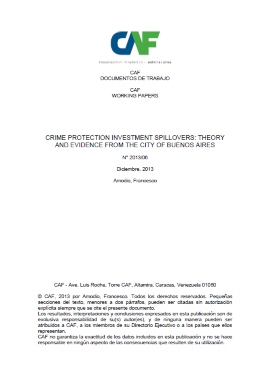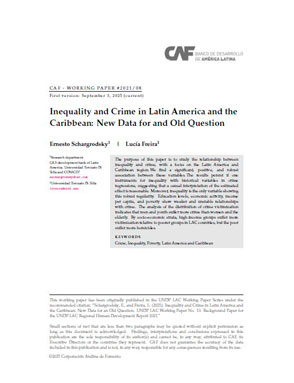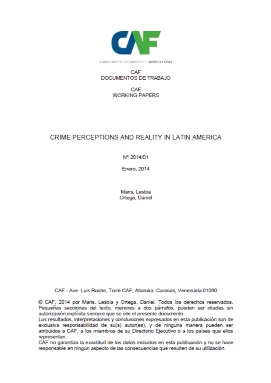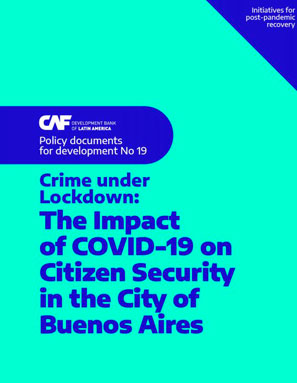Crime Protection Investment Spillovers: Theory and Evidence from the City of Buenos Aires
Resumo
This paper studies spillover effects among potential crime victims from investment in observable protection technologies. Criminals and potential victims interact in a frictional market for offenses. Externalities within the two market sides arise as trading externalities, and their sign and size depend on the equilibrium changes in victimization probabilities. I explore the issue empirically using household-level geo-referenced data from the City of Buenos Aires. The City exhibits a significant level of spatial clustering of burglary protection investment. More importantly, investment by neighbors is shown to significantly affect individual households' investment decisions. In order to achieve identification, I exploit within-neighborhood variation in close neighbors' protection investment status as induced by their knowledge of crimes suffered by friends, relatives, acquaintances or others, occurred sufficiently far away. Indeed, information about others' victimization experiences is found to significantly increase the protection investment of neighbors, and can thus be used as a source of exogenous variation for the latter under relatively weak assumptions. Instrumental variable estimates show neighbors' investment in CCTV cameras and alarms to significantly increase a given household's propensity to invest in the same technology. No effect is found instead for special door locks, bars or outdoor lighting. Taken all together, results implicitly suggest the supply of criminals in the city to be relatively inelastic with respect to the intensity of protection in the average location, or perceived to be so by potential victims.
País / Región
Data
2013Cite esta publicação
Item que pertence à coleção

Autor
Amodio, FrancescoItems Relacionados
Inequality and Crime in Latin America and the Caribbean: New Data for and Old Question
The purpose of this paper is to study the relationship between inequality and crime, with a focus on the Latin America and Caribbean region.We find a ...
Crime Perceptions and Reality in Latin America
We show that perceptions of insecurity are strongly correlated with victimization at the individual level and suggest that the reason this relationship ...
Crime under Lockdown: The Impact of COVID-19 on Citizen Security in the City of Buenos Aires
This paper studies the impact of the COVID-19 pandemic and the subsequent lockdown on criminal activity in the City of Buenos Aires, Argentina. We find ...





